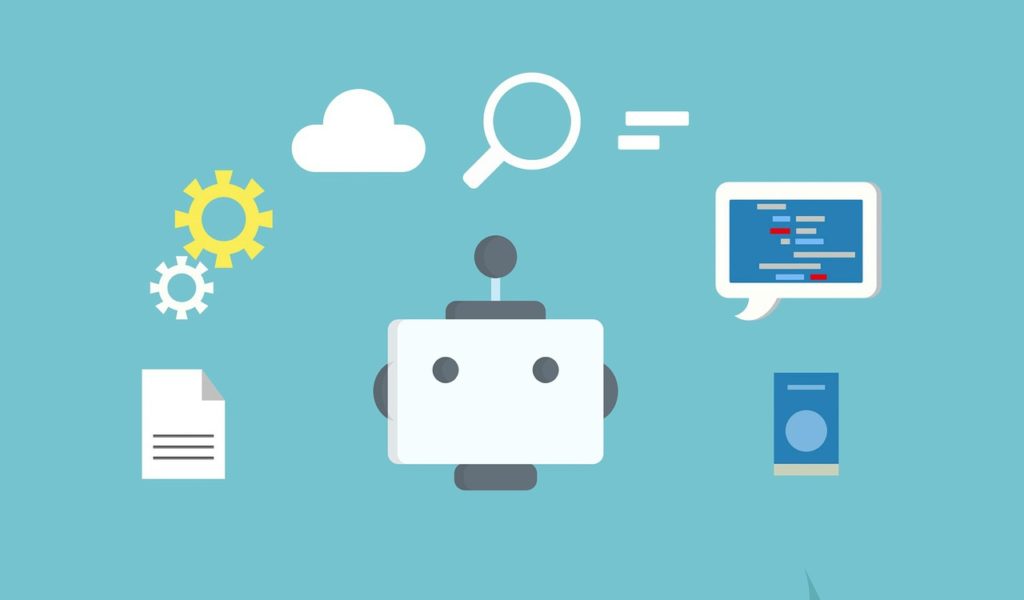How to Use AI to Boost Your SEO

Contens:
- What is AI in general and in SEO terms
- Some AI content generation stats
- Why automated content creation is the future
- How to make AI play in your team
- AI SEO tools marketers use
- Expert opinions on AI in SEO
- Conclusion
Even if we live in 2023, when we are talking about utilizing AI in the daily lives of many companies, it is still a topic of speculation. This is what people are thinking and usually start to imagine robots and cars without pilots.
In reality, artificial intelligence is also performed in many routine tasks, which normally take time for people and minutes or seconds for AI. Apparently, artificial intelligence for SEO is something that will be the basis for the whole future of marketing. As AI SEO content can bring your rankings to an ultimately another level, in this article, we propose you find out its pros and cons of it.
What is AI in general and in SEO terms?
Artificial intelligence, which started with the invention of the computer, was made with one principal cause - making different processes faster and more precise. Now, almost every aspect of our life is covered with AI, and if we talk about our interactions with search engines, it will be literally everywhere.
AI is widely used for data collecting as it becomes the framework for later utilization. Based on your search history, it can identify many things, from your current localization and usual behaviors to your plans for the weekend.

Artificial intelligence in search engines is already proven to be twice as effective as manual performance. First of all, AI works with content generation and analysis. Also, it is integrated into SEO activities like keyword research, image and voice recognition, mobile optimization, and machine translation. The best thing about AI-based SEO is that it provides you with analytics, which is usually built with tracking the account of the contributing factors. By comparing different data, like rankings, content gaps, SEO optimization, etc., AI gives you a clear vision of the situation and boosts your performance.
Some AI content generation stats
While generative AI is still becoming a widely accepted technology, surveys in 2023 found that 51% of more than 1,000 marketers are either implementing or testing its capabilities in their roles. Another 22% expressed their intention to integrate generative AI tools in the foreseeable future. This suggests that almost 75% of marketers surveyed could potentially harness its power in the present.
Key applications of generative AI in marketing include:
- Basic content creation (76%)
- Production of written materials (76%)
- Fueling creative ideas (71%)
- Analysis of market trends (63%)
- Visual asset design (62%)
Moreover, marketers expect their roles to change thanks to generative artificial intelligence, allowing them to focus on more strategic tasks:
- A significant 71% of marketers foresee generative AI will simplify everyday tasks, allowing them to sharpen their focus on strategy.
- They estimate the time savings to be five hours per week, which equates to more than a month per year.
- However, concerns remain. The biggest concerns are accuracy and quality of content (31%), followed by reliability (20%), competence (19%) and job security (18%).
Hence, why automated content creation is the future?
As you can see, AI has already received wide use, and we think that we are only at the beginning of the AI era. This way, how exactly does AI already perform, and what are the most significant areas?
First of all, we will mention all paid media like Google Ads or Meta Facebook Ads, which proved to be one of the most effective AI tools concerning analytics and automated strategies. Secondly, AI presents itself in working with technical stuff, such as finding backlinks, surveying shares, and identifying content gaps. Also, the other positive side of SEO AI is that it engages with a massive amount of different SEO traffic and, based on that, helps create a unique SEO strategy. Therefore, by working with specific AI content generation tools, you can count on your posts to be shown to the targeted audience and receive the publicity you want.
It will be hard to deny that the vital point of SEO is customer satisfaction. Undoubtedly, AI can’t replace interaction with clients, but what it can do is be used on more technical issues. It will supply you with great analytical insights, and you in return, will focus on the other aspects.
How to make AI play in your team and enhance the traffic?
So, here let’s look at the main spheres where AI content marketing is utilized.
1. Artificial Intelligence keywords research
OK, here we will start from the clearest thesis, but not less important. Today, you can say goodbye to manual keyword research and generation. With access to the analytics which AI has, there is no doubt about its efficiency.
How does it work? You need to think about your target audience and all the topics related to your business. And from now, all the work goes to AI SEO. You can just write a keyword phrase, and AI will automatically generate all the relevant phrases.
Then, the next step is to proceed with all the tones of keywords through the AI program to identify the most powerful. After that, most of the tools will provide you with stats like what people are searching in general terms, how complicated it will be to rank for the specific keywords, and the available statistics for searches for different periods.
This way, let’s not forget about link building, which goes hand in hand with keyword research. As you can see, searching for all of this information manually can be tough work, and AI is a natural alternative.
2. AI content creation
So, you have already searched for the keywords, and now you need to correctly implement them in texts, infographics, images, and charts. At the same time, AI-generated content is not only about creating data with the help of machines. AI can supply you with all the necessary information about content gaps in already existing texts and the most trending topics at the moment.
The thing is that AI has developed more and now is widely used in spheres like translations, meta titles generation, paragraph correction and fulfillment, researching, text generation, etc. Despite all of that, many people still consider such texts of “poor quality”. Well, with the GPT 3 SEO language model, which is used to produce a human-like text, it is no more a problem. Now, there is no more need to waste your time, as AI genuinely understands customers' needs and is more than capable of writing suitable content.
You will probably ask the question if Google can detect AI-generated content? Formally, from Google's point of view, automated content generation is still a kind of spam. The good news is that it becomes more and more complicated for Google to detect it as AI content becomes higher quality. Accordingly to Search Advocate John Muller, many companies use AI to avoid vocabulary challenges and make their texts more readable for SEO, so Google basically “ tacitly approves it”.
3. SEO optimization
Search engines like Google are also some kind of artificial intelligence. And who can understand it better than another AI? SEO is also no more only about the right online page optimization, keywords, or particular techniques. AI for SEO is receiving the data, which shows the final aim of the customer. Thus, it allows acknowledge your clients as never before.

Based on user research, AI will outline the best criteria for the particular topics, like the length of the content demanded. Also, AI shows the most commonly asked questions and assists you in collecting and allocating to put you at the top of the rankings. And it is not the end. AI successfully copes with plagiarism and retrieves the critical data from tones of content on the Internet. AI uses the approach, which is called Natural Language Processing and is utilized in providing exact statistics directly to you.
In any case, as we remarked, the most effective and organic SEO content comes from the literate balance of SERP analysis and AI. So, that means that standard AI tools can: answer questions, produce briefs, create snippets, do the research, and so on.
4. AI involvement in user experience
We live in the era of user experience, and it is not a secret that the final goal of SEO is to make this experience as great as possible. So, it is no more only about the text and data provided. It is about the value your page gives to the consumers. Consequently, the better the user experience on your page, the higher you get in the Google rankings.
That is why some factors need to be taken into account. Among them are easy website navigation, authoritative content, mobile optimization, time of page loading, and comprehensive page structure. Using specific AI tools in this sphere will help you take control over your rankings and have a clear vision of which of your actions give positive or negative feedback.
Suppose your content is massively shared, and customers are not just entering your webpage and living it simultaneously. In that case, this is a powerful indicator for search engines to push you to the top. Moreover, the main positive side of AI is that it can calculate people’s behavior to give unique assistance. And of course, we can’t forget the chatbots that can stay in touch with your clients 24/7, and thus provide more time to your staff for dealing with more complicated questions.
AI SEO Tools Marketers Use
- ChatGPT: Renowned for generating human-like text.
- Jasper: Tailored for SEO professionals.
- HubSpot's AI tools: Offers data-driven insights.
- SEO.ai: Specializes in website optimization.
- OutRanking: Uses advanced algorithms for better rankings.
- Surfer SEO: Provides on-page data analysis.
Expert Opinions on AI in SEO
Enhance Content with NLP-Friendly AI
AI can obviously be used to write content, but I prefer to use AI to make human-written content better. More specifically, you can use AI to write more NLP-friendly content (natural language processing). Search engines use natural language processing to understand the meaning of words and sentences in content. NLP plays a large role in classifying content and generating featured snippets.
So, if you can write your content in a way that makes it easier for search engines to understand, you'll have an easier time ranking for the searches you want to rank for and potentially scoring more featured snippets. A prompt like this can be used: "I'm going to provide you with a post I wrote. I need you to rewrite the post in an NLP-friendly way."
After pasting in the post, it's been found that Chat GPT works to make sentences shorter, simpler, and more direct. This is ideal for featured snippets where search engines need a concise summary to display.
David Kranker, Digital Marketer and Owner, David Kranker Creative
Identify Personas
My team has found it extremely valuable to use AI tools to identify personas and their pain points.
For example, we work in the water damage restoration industry, and here is the prompt I have used in AI tools: "Create five personas for people who would search for 'water damage restoration' in search engines. For each persona, identify the pain points that 'water damage restoration' would solve." The information that comes from this prompt has helped us identify additional target markets and how to appeal to these markets. The pain points are extremely helpful when writing content because we are able to show how our services solve these specific pain points.
AI has helped us improve our content marketing strategy by providing us with more information about our target market.
Albert Atkins, Director of Sales and Marketing, SERVPRO of Cuyahoga South
Conduct Analysis for Content Scoring
AI has improved our SEO in many ways, but the most notable is its ability to analyze content and assign scores based on Google's Search Quality Grader Guidelines. This provides a quantitative measure to what was previously a purely qualitative guess.
Prompts act as a Google Search Rater, allowing AI to create seven parameters of justifying content based on the questions Google provides in the Search Quality Grader Guidelines. These parameters include Originality of Content, Depth & Completeness, Headline Integrity, Trustworthiness of Presentation, Expertise of the Author, Factual Accuracy, and Reliability for Important Decisions.
This method has proven extremely effective for our content writers, as AI provides specific areas for improvement for each piece. The results have been very successful so far!
Bryan Sekine, SEO Specialist, Carrot
Revolutionize SEO Technical Aspects
AI has revolutionized the technical aspects of SEO. Despite being a huge fan of Google Sheets, learning things like RegEx was always a challenge. This hindered tasks like comparing keywords in two different sheets or pulling in title and H1 data. Now, all that's needed is to instruct AI on the requirements, and it generates the necessary script.
Isaac Hammelburger, Founder, Search Pros
Generate Calls-to-Action
Using AI, like ChatGPT, has been key to improving our SEO by helping create different versions of calls-to-action. This lets us do thorough testing to find out what our audience likes the most. This way, we can focus more on making content and less on the tiny details.
Having AI to help with CTAs has really increased our engagement and conversions because it matches what users are looking for. It lets us put our time and energy where it's needed most and shows how important AI is for our marketing strategies. So, it's safe to say, using AI this way has brought us great results in SEO.
Kevin Hall, Marketing Operations, Webserv
Find Keyword Suggestions from Search Trends
One can simply export the data from popular tools like SEMrush and Ahrefs, and get AI to help analyze search trends and user behavior to suggest relevant keywords. We can naturally integrate these keywords into the content to improve the website's visibility in search engine results.
Praveen Kumar, Chief Decision Maker, Wild Creek Web Studio
Analyze Competitor Keywords
One unusual way I've utilized AI was to build an automated system that analyzes competitor websites for keywords they use in high-ranking pages. This helps identify which terms can be used to enhance content rankings.
This strategy proved effective for increasing organic traffic because it directed us towards phrases aligned with user intent and tailored our SEO efforts based on direct competition rather than generic trends in the industry.
Carly Hill, Operations Manager, Virtual Holiday Party
Try Neuronwriter for SEO Optimization
I highly recommend Neuronwriter for SEO optimization. This tool uses AI to provide semantic suggestions, identifying terms and phrases that are essential for SEO based on top-ranking competitors but might be missing from the content. It's a game-changer because it understands the semantic context that's critical to show up high on Google.
After incorporating these AI-generated suggestions into blog posts, there has been a noticeable improvement in search engine rankings on more than one occasion. This has made Neuronwriter a staple in the content strategy going forward.
They also recently introduced a bunch of AI generation features to accelerate content production and save time on the first article draft.
Juliet Dreamhunter, Founder, Juliety
Conclusion
AI's influence in the global market is undeniable. The key lies in harmonizing AI with human resources. By embracing AI-driven content marketing, businesses can craft robust SEO strategies and witness a significant surge in traffic.
